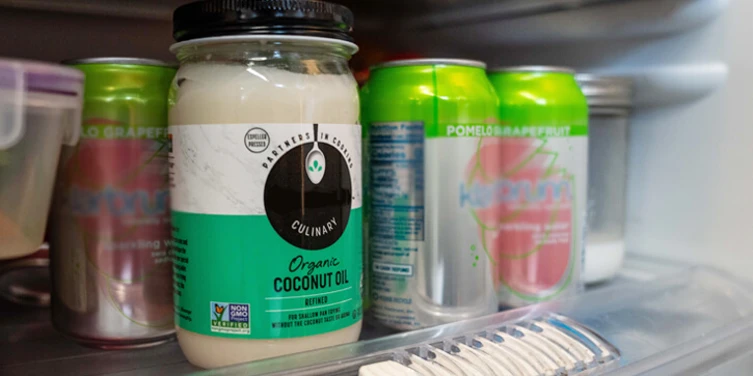Does Coconut Oil Need to Be Refrigerated?

Coconut oil has gained popularity over the past decade among those looking for a healthier alternative for cooking, grooming, skin care, and more. With so many different applications and benefits, it's easy to see why coconut oil has become a staple in homes across the country—but while many people can name a dozen different ways to use it not everyone knows the right way to store it. Take the mystery out of this fragrant tropical oil with helpful tips and advice from the knowledgeable experts at Mr. Appliance®.
What is Coconut Oil?
Coconut oil is extracted from the white, meaty flesh of the coconut and is processed using a variety of different methods. Fresh or dried coconut may be used during production, resulting in one of the following types of oil:
Partially Hydrogenated
Unsaturated fats are hydrogenated either fully or partially to create a product that is longer lasting, and one that will remain solid in a warm environment.
Refined
Dried coconut is machine-pressed and then heated or steamed to remove the odour and filtered to remove any impurities. The final product is odourless and flavourless with an elevated smoke point of between 400 and 450 degrees.
Virgin or Extra Virgin
The coconut meat may be dried and then pressed to produce oil or fresh-pressed to yield a supply of both milk and oil. The final product has a lower smoke point of approximately 350 degrees, making it suitable for baking or sauteing, but unsuitable for deep frying.
Coconut Oil Benefits and Uses
Coconut oil is an extremely versatile product which can be used as part of your daily beauty routine or as a staple in the kitchen. Common uses include:
- Cooking – Coconut oil is a stable alternative to traditional cooking oils that can withstand relatively high temperatures.
- Baking – Use as a substitute for vegetable oil or butter in most recipes.
- Massage – Coconut oil can be used alone or as a carrier oil in combination with essential oils.
- Moisturizer – Those suffering from dry skin or eczema may find relief with regular use.
- Hair Treatment – May be used as a hair mask or hot oil treatment.
Coconut Oil Storage Tips
If you've ever asked yourself the question "Does coconut oil need to be refrigerated?" you're not alone. Coconut oil is shelf stable for up to two years, and under normal circumstances is well suited for the kitchen shelf or pantry.
Tips for storage include:
- Coconut oil remains a solid up to 74 degrees, after which time it becomes a liquid.
- Opt for oil that is sold in a glass or BPA-free plastic container to avoid chemical leaching.
- If you do choose to refrigerate coconut oil, allow it to sit out at room temperature for several minutes before using to make it easier to scoop.
- Store the container of oil away from heat and light to prevent spoilage.
- Signs of spoilage include discoloration, mold, or an unpleasant or unusual odour or flavour.
- Coconut oil can be frozen for long-term storage as long as it is placed in a freezer-safe container.
- If the oil is in a liquid state and you require it to be in solid form for baking, place the required amount in the refrigeration for several minutes to firm up.
Regardless of whether you prefer to cook with coconut, avocado, or olive oil, never pour grease down the drain after use. Keep your kitchen running safely and efficiently with professional, reliable repair services from Mr. Appliance. Contact your local Mr. Appliance today or call us to schedule an appointment.


